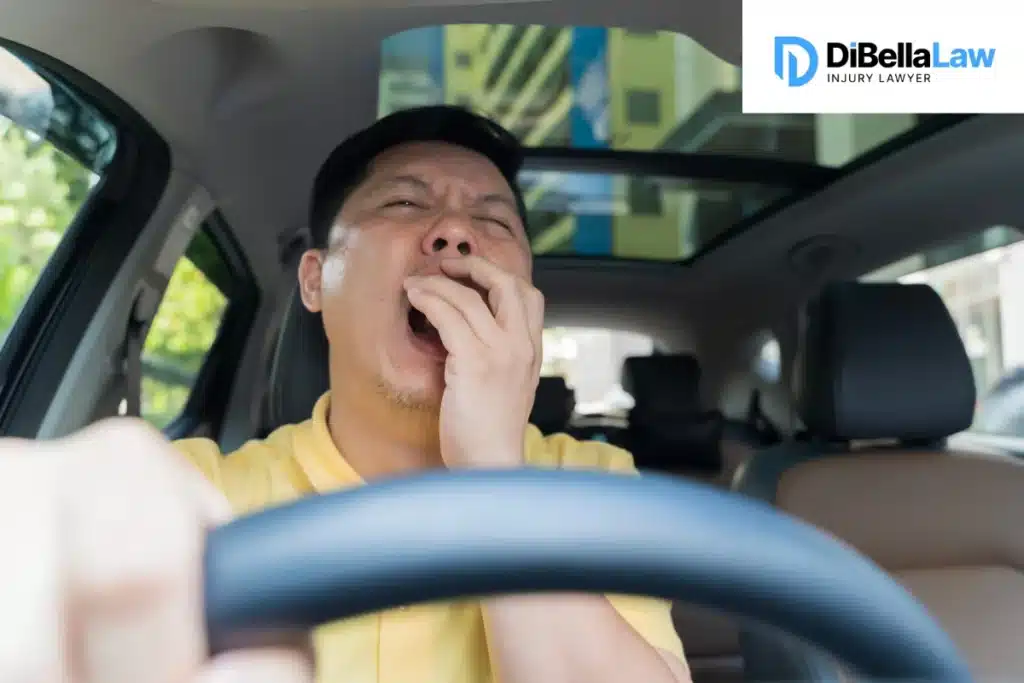Life can be hectic at times, so people are constantly trying to seek out new and creative ways to accomplish more each day. Multitasking and overbooking your day with appointments and other obligations seems to be the norm, and we seem to be getting fewer and fewer hours of sleep each night as a result.
If you’re planning on operating a motor vehicle, a wandering mind and sleep deprivation can be a recipe for disaster.
At first, you might not even notice you’re having difficulty focusing or that you feel drowsy. However, drowsy driving is a serious issue, and thousands of people are impacted by it in some way each year. According to the National Highway Traffic Safety Administration (NHTSA), drowsy driving resulted in about 72,000 accidents, 40,000 injuries, and 800 deaths in the United States in 2013 alone.
It’s simple. A driver’s drowsiness, also referred to as driver fatigue, results from not getting enough rest. The driver didn’t get enough rest and is therefore incapable of safely operating a vehicle without putting him or herself and all others on the road at risk. Numorous factors can play a role in creating a drowsy driving situation:
- Interrupted sleep;
- Chronic insomnia, narcolepsy, or other sleep disorders;
- A work schedule that conflicts with the natural circadian rhythm or impacts the amount of sleep;
- Driving for too long or for an extended period with no rest break;
- Use of sedatives or other sleep aids prior to driving;
- Consumption of alcohol or narcotics.
(Or any combination of the above factors)
The signs of a drowsy driver will vary from person to person and depend on the level of drowsiness. In most cases the signs will include:
- Slower reaction times
- Short-term memory loss when driving
- Difficulty focusing
- Frequent blinking
- Daydreaming
- Yawning repeatedly
- Rubbing the eyes
- Feeling restless
- Irritability
Anyone who has not had enough sleep can become fatigued. However, studies do show that younger drivers, between the ages of 18 and 29, are at a higher risk for drowsy driving because their sleep cycles differ from those of older adults. Sleep deprivation is different for teenagers, who require at least nine hours of sleep to achieve the same daytime function levels as an adult with seven or eight hours of sleep. Recent studies have found the average young person gets between five and seven hours of sleep on a regular basis. This loss of one hour or more of sleep per night will add up over time to create what is called sleep debt. After a week of accruing sleep debt, young people enter the weekend with a lack of about 10 hours of sleep, which puts them at a much higher risk of a serious accident.
To help avoid drowsy driving, the National Sleep Foundation has created a list of tips for drivers to follow:
- Always try to get seven to nine hours of sleep each night;
- If you have been awake for 24 hours straight or longer, never drive;
- If you are sleepy and must drive, drink something caffeinated to help make you more aware;
- For long drives, plan on stopping to rest every 100 miles or two hours of time spent on the road;
- Ideally, only operate a motor vehicle during typical waking hours (may vary from person to person).
What Happens If a Drowsy Driver Causes a Car Accident?
If you have been involved in a car crash and you believe that the driver who caused the accident was sleep-deprived, drowsy, or may have fallen asleep at the wheel, contact DiBella Law Injury and Accident Lawyers, at (978) 396-2464 to schedule a free consultation. Drowsy driving can result in serious property damage, injuries, and even the loss of life. And if the driver who caused your accident chose to drive in that condition, you may be entitled to compensation for your losses and injuries.
Massachusetts follows a concept of modified comparative negligence in personal injury matters. This means you may only seek compensation from the other party if you are less than 51% at fault for the accident. Having a skilled Boston car accident lawyer at your side can make all the difference in being able to prove the other driver’s negligence.
In the state of Massachusetts, you can seek compensation for both your loss of property and your current and future medical bills related to your injuries. Additionally, you might be eligible to be compensated for lost wages, scarring or disfigurement, pain and suffering, and other expenses you incurred as a result of the accident. Contact DiBella Law Injury and Accident Lawyers, today to schedule a free consultation to learn about your rights as a victim of a drowsy driver.
